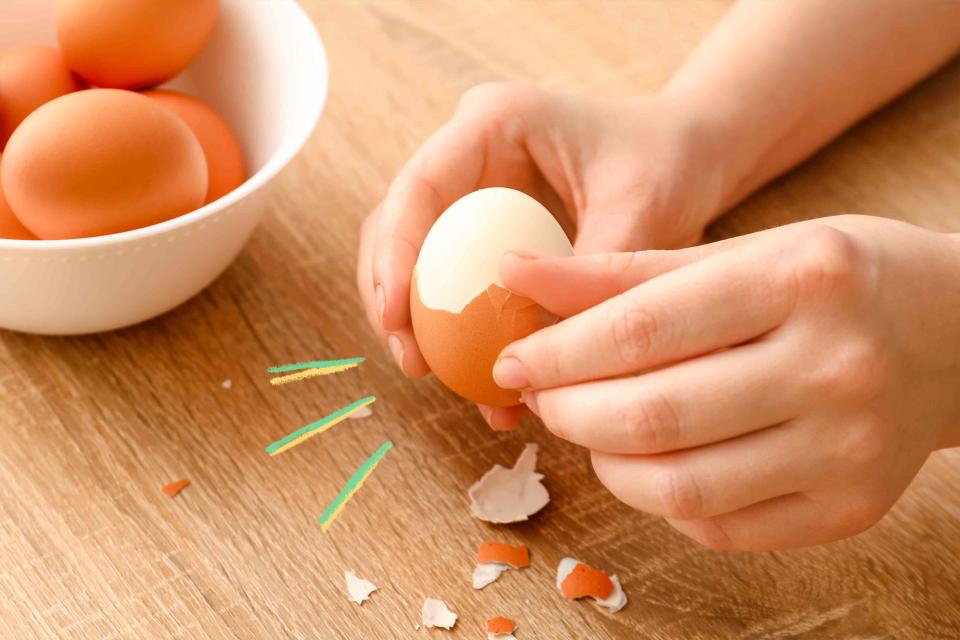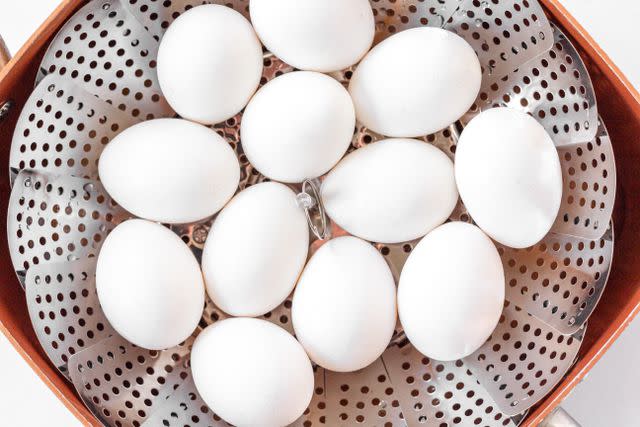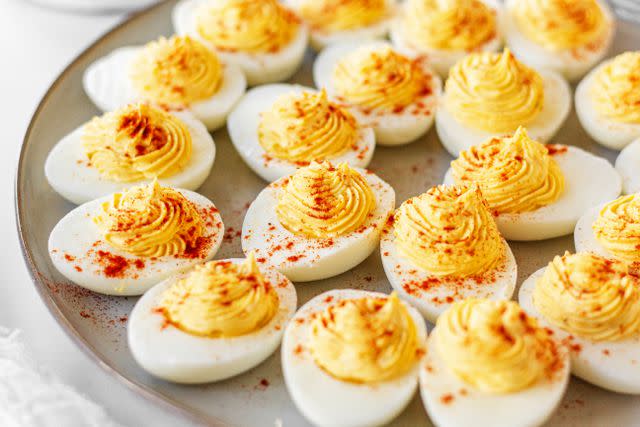The Secret to Hard Boiled Eggs That Peel Like a Dream
For picture-perfect deviled eggs and more!

Simply Recipes / Getty Images
Growing up in the South, I have eaten more than my fair share of deviled eggs. They were at every party, picnic, and cookout of my childhood. They’re also one of the first foods I remember making with my mom, who always let me finish off the last bits of filling with a spoon that I’d eagerly dipped into our melamine mixing bowl.
She had a special trick for peeling the eggs: holding them under running water to help the peels loosen and fall away easily. It was a good trick in theory, but it didn’t always work, especially with fresh eggs. Sometimes we’d end up eating a lot of misshapen “mistakes” that failed to peel smoothly.
Over the years, I’ve tried just about every trick to yield easy-peeling, smooth hard boiled eggs. I’ve tried adding salt, baking soda, and vinegar to the cooking water, to little effect (Not all at the same time... I think that’s how you make a volcano).
I was resigned to the idea that I’d be eating my mistakes forever when a friend shared a tip that changed everything. The best way to cook hard boiled eggs for easy peeling is to steam them!

Simply Recipes / Kelly Hamilton
How to Steam Eggs for Effortless Peeling
If you can boil eggs, you can steam them just as easily.
Prepare a lidded pot with a steamer basket and enough water to steam—fill to just below the steamer basket. Bring the water to a boil, and then turn off the heat and carefully place eggs in a single layer in the steamer. Cover the pot and return to a boil. Set a timer for 10 minutes.
While the eggs are steaming, prepare an ice bath. When the timer goes off, use a slotted spoon to transfer the eggs to the water bath, and let them cool for at least three minutes before peeling. This step is just as important as steaming because it shocks the egg, immediately stopping the cooking process and making the eggs easier to peel.
The length of time it takes to steam an egg depends on the size of the egg and the level of doneness you prefer. For my deviled eggs, 10 minutes gives me the vibrant yellow yolk and smooth whites I’m looking for. You may need to experiment to find your ideal timing; just test one egg at a time to find what works best for you.
Read More: How to Steam Hard Boiled Eggs

Simply Recipes / Kelly Hamilton
More Tips for Steaming Eggs
You can use this method without a steamer basket if you don’t have one. The process is exactly the same except you’ll place the eggs directly in a small amount of boiling water rather than in the steamer basket. This method also works with the steamer function on a rice cooker or Instant Pot.
I use the same metal steamer basket I’ve had for 20 years and it works perfectly, but it does limit the number of eggs I can steam at one time. Six eggs fit in a single layer in that basket, and even if I double the layer of eggs, which will require extending the cooking time so that all of the eggs steam properly, it’s still a stretch to accommodate a dozen.
So if I’m steaming more eggs, I like to use my bamboo steamer. I can get 18 eggs in that one—now that’s a party!
How To Store Hard Boiled Eggs
Once your eggs are steamed and cooled, store them, refrigerated, in the shell until you’re ready to eat them, or up to seven days. Use them for beautiful deviled eggs or an extra rich and luscious egg salad.
Steaming is also a fabulous choice for making pickled eggs, which tends to show every nick and divot. I love having a few eggs on hand for super quick grated egg toast or to make soy sauce eggs for a protein-rich afternoon snack.
Read the original article on Simply Recipes.

